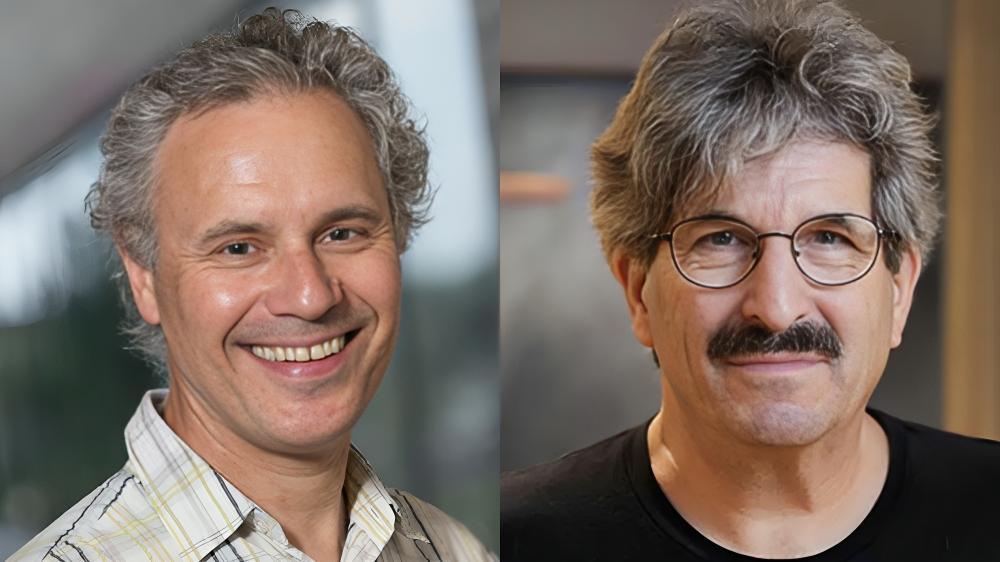Justin Stebbing shared at theconversation.com:
“Two scientists, Victor Ambros (UMASS Chan Medical School in the US) and Gary Ruvkun (Harvard Medical School in the US), have won the 2024 Nobel prize in medicine or physiology.
They received the prestigious award for discovering tiny molecules in our cells called microRNAs. This discovery has not only changed our understanding of how our bodies work, but opens up a whole new area of science as well. It even extends into new treatments.
These molecules, microRNAs, can be simply thought of as tiny controllers inside our cells, the building blocks of our bodies. They help decide which parts of our DNA, our own genetic material, should be active and which should be quiet.
Think of them as volume knobs for our genes, turning them up or down as needed. All our cells contain the same number of DNA letters called bases – there’s about 3 billion. These tiny little molecules themselves, in fact, help control which of those letters are on or off, how loud that volume switch is and, in doing so, how our own genes behave.
This is called gene regulation and is so important, helping cells decide what type of cell they should be. They also have lots of roles in hard-to-treat diseases such as cancer and neurological diseases such Alzheimer’s and Parkinson’s.
MicroRNAs play crucial roles in our bodies throughout our lives. They guide our development from a single cell into a fully formed person with various organs and tissues.
As we grow and age, these tiny molecules continue to keep us healthy by fine-tuning our genes’ activity as needed. When microRNAs malfunction, it can lead to diseases such as cancer, which is why scientists are studying them to develop new treatments.
Interestingly, microRNAs also help explain why different parts of our body look and function differently, despite all our cells containing the same DNA letters. This makes them essential for both our overall health and our individual uniqueness.
Much of my own research has focused on microRNAs and we now know there are thousands of these in our cells, all of them different. Teams I have led have shown their importance across many different cancer types, and how they control different cellular processes, such as growth, division, but also spread, which can occur in cancer. We’ve even found they’re key to waking up stem cells in cancer, rare populations that can seed a whole new tumour.
Ambros and Ruvkun found these microRNAs while studying tiny worms. They realised that these molecules could control how the worms grew.
The fact that microRNAs are found across many species suggests they’ve been important throughout evolutionary history, and across biology in general. Later, scientists found that humans and other animals have microRNAs, too.
Understanding microRNAs could lead to new ways to diagnose diseases earlier and overall a deeper understanding of how our bodies work.
Scientists are exploring ways to use microRNAs or molecules that target them as treatments for various diseases. We’ve found that some microRNAs are in fact very good at turning off cancer cells so they might even be useful as treatments in themselves.
In basic terms, the discovery of microRNAs is like finding a new set of tools that our bodies use to stay healthy. This knowledge gives scientists and doctors new ways to help people when things go wrong with their health.
The Nobel prize recognises how important this discovery is for medicine and our understanding of life. Their pioneering work on tiny worms led to the discovery of a fundamental biological mechanism that’s crucial for life as we know it.
Their Nobel prize recognises how this discovery has transformed our understanding of gene regulation and opened up new avenues for medical research and treatment. It shows that even tiny things in our cells can have a huge impact on our overall health and wellbeing.”
More posts featuring Justin Stebbing on oncodaily.com
Victor Ambros and Gary Ruvkun Awarded 2024 Nobel Prize
Justin Stebbing is a visiting Professor of Cancer Medicine and Oncology at Imperial College, London and a Professor of Biomedical Sciences at Anglia Ruskin University (ARU), Cambridge. He was appointed the first NIHR oncology professor in 2011.
He is editor-in-chief of Nature’s cancer journal Oncogene. Prof. Stebbing has published over 700 peer-reviewed papers in leading academic journals. He is a member of the American Society for Clinical Investigation, a fellow of the Royal College of Physicians, and the Royal College of Pathologists, and sits on many advisory boards. He is on the Editorial Board of OncoDaily.


